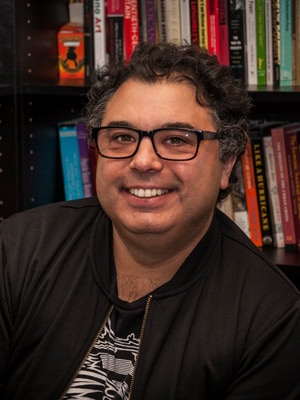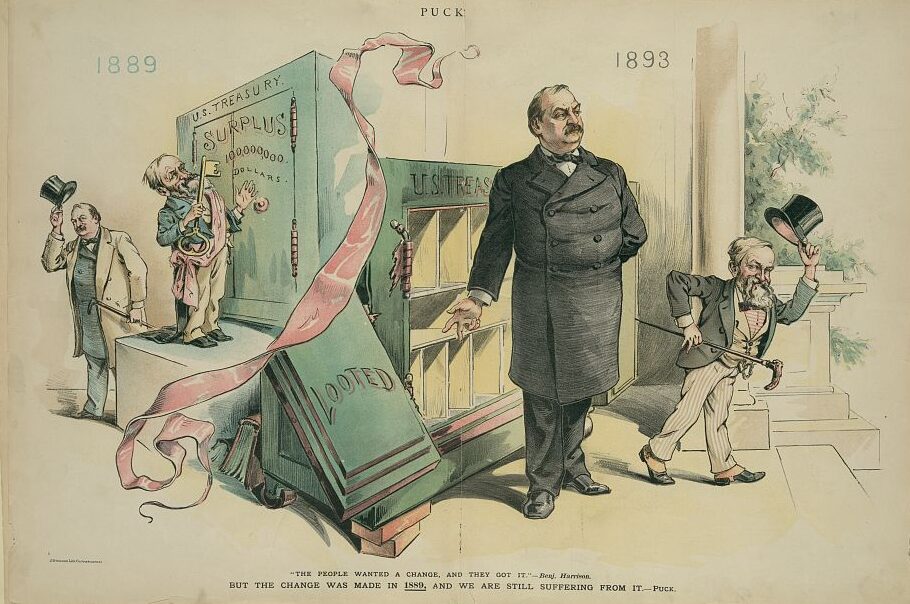Marc S. Rodriguez is a professor and journal editor at Portland State University. He lives in Portland, Oregon, and has been a member since 1993.
Website: https://www.pdx.edu/profile/meet-professor-marc-rodriguez

Alma maters: BA, University of Wisconsin-Milwaukee; MA and PHD, Northwestern University; JD, University of Wisconsin Law School
Fields of interest: Chicanx/Latinx, politics, labor, migration
Describe your career path. What led you to where you are today?
I was a steelworker in college and escaped injury at my place of work, and decided that I needed to do something else. I quit that job and dedicated myself full time to history. My advisors at UW-Milwaukee suggested I attend graduate school so I applied and attended Northwestern University in Evanston, Illinois. After completing my coursework I then left for UW Law School in Madison, Wisconsin, completing my PhD in history in 2000 and my JD in 2001. I had over a dozen interviews at the 2001 AHA meeting and began my first tenure-track job in the fall of 2001 at Princeton University. At Princeton I was assistant director of the Shelby Cullom Davis Center in 2002–03 and the topic that year was migration, so I organized conferences and workshops on migration, the War on Poverty, and the Chicano Movement getting to know some amazing historians in the process. My year at the Davis Center was amazing! I left for Notre Dame in 2004 where I worked for several years, before briefly working as a museum director at Indiana University South Bend’s Civil Rights Heritage Center, and eventually moving to Portland State University to take up the position of editor of the Pacific Historical Review and professor in the history department.
What do you like the most about where you live and work?
I like that Portland State University is a union shop represented by the AAUP as a labor union. Sadly, many leading labor and progressive historians have never themselves been in a union. I joined the United Food and Commercial Workers Union at 16 working in a grocery store and was happy to again join my first academic union in 2014. Portland is a stronghold of union workers and I like this more than all the hipster coffee shops and great restaurants—although I like these things as well.
What projects are you currently working on?
I am pretty busy as editor of the Pacific Historical Review, but when it comes to my own research I am now exploring comparative immigration history and continuing work on labor history in Texas.
Have your interests evolved since graduation? If so, how?
Yes, I started out as a historian of Chicanx labor and political history, then Chicanx history in general, and am now moving into comparative teaching and research.
What’s the most fascinating thing you’ve ever found at the archives or while doing research?
I was in the offices of the Zavala County Sentinel in Crystal City, Texas, looking at old bound copies which were falling apart, and you could see where mice or other rodents had eaten some of the bindings. I asked the editor if he would let me find a way to have these microfilmed. I called the Princeton University Library and they contacted the University of Texas Library and worked together to have these newspapers retrieved (they said “we are sending a bus down next week”) and preserved on microfilm. I did not get to see these newspapers for three years as they were processed, which delayed my book project, but when I did I was so happy to see the social lives of the region’s Chicanx people in such detail from the 1940s-70s in the pages of the now preserved papers.
Is there an article, book, movie, blog etc. that you could recommend to fellow AHA members?
I have to recommend that they look at the Pacific Historical Review, published by the Pacific Coast Branch of the American Historical Association (PCB-AHA). Some members may not know that if they live west of the Mississippi River in the USA and Canada their AHA membership also makes them members of the PCB-AHA. The journal needs to be ordered separately on the AHA page. Our journal has been publishing prizewinning articles for nearly 100 years and I encourage members to check us out. We also often have issues or articles free so follow us on Facebook for more information.
What do you value most about the history discipline?
Archival-based and fact-based research. While other adjacent fields, in my view, seem to be falling into the abyss of theory as they jettison field work and the archives, it still matters that historians seek to understand the past using archives, newspapers, oral histories, and other verifiable sources in a way that requires fact checking. I like that history is a research- and fact-based discipline.
Why is membership in the AHA important to you?
When I was younger I had, like many, a fear of the AHA mainly as a result of the jobs portion of the meeting. Now that those things are changing I like that the AHA is a way for people from all fields and subfields in history as well as public historians and teachers to come together to talk history and maybe consider the work of those outside their own field.
Do you have a favorite AHA annual meeting anecdote you would like to share?
It had something to do with the meeting in Boston and a car full of people laughing a lot as we were heading off to go dancing. That is all I remember.
AHA members are involved in all fields of history, with wide-ranging specializations, interests, and areas of employment. To recognize our talented and eclectic membership, Perspectives Daily features a regular AHA Member Spotlight series.
This work is licensed under a Creative Commons Attribution-NonCommercial-NoDerivatives 4.0 International License. Attribution must provide author name, article title, Perspectives on History, date of publication, and a link to this page. This license applies only to the article, not to text or images used here by permission.



